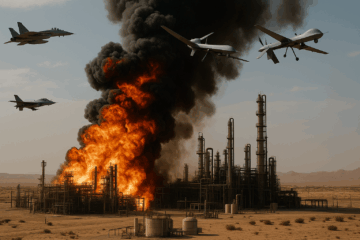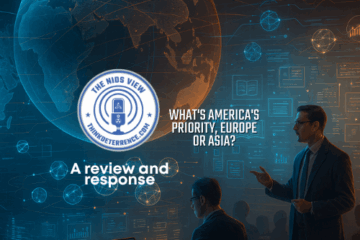The Russian presence in Africa significantly expanded in recent years, especially following the restructuring of the Wagner Group, now renamed Africa Corps. The coups that took place in several African nations over the past two years welcomed the Russian presence. In the previous article, we presented an overview of such developments.
Yevgeny Prigozhin’s death in August 2023 led to the restructuring of the Wagner Group into several new entities. At least four new groups reorganized thousands of former Wagner fighters, with a significant portion now operating under the Russian Defense Ministry and other intelligence services.
The entity operating as Africa Corps continues Wagner’s operations across Africa, including in the Central African Republic (CAR), Mali, Burkina Faso, Niger, and Libya. Estimates suggest that these reconstituted paramilitary groups have around 5,000 members stationed across Africa. These forces are a mix of former Wagner operatives, new recruits, and other mercenaries. They are involved in a variety of roles such as providing security, training, combat operations, support to local regimes, and support to specific factions—like the Rapid Support Forces in Sudan and Haftar forces in Libya. Generally, they have contracts to provide security to unstable regimes in the region.
The presence of Russian troops in certain African nations is a cause for concern. As an illustration, it is worth noting that Russia recently bolstered its military presence in Libya. This includes the deployment of significant military equipment and personnel to provide support for General Khalifa Haftar with towed artillery, armoured personnel carriers, and rocket launchers. Russia is very clearly attempting to bolster its strategic position in the region as it supports aspirations for a naval base in Libya.
This move will amplify Russian influence in North Africa and pose a potential threat to Europe from the southern Mediterranean. In eastern Libya, there are air bases, such as al-Jufra, that serve as refuelling stations for Russian military flights before continuing to other African countries.
There are reports suggesting that Russia is close to setting up a naval base in Sudan, specifically in the vicinity of Port Sudan. In Sahel countries like Burkina Faso, Mali, and Niger, Russian forces, including those from the Africa Corps, are helping military juntas. They also participate in operations against insurgencies and safeguard governments. The Russian presence in the Sahel significantly increased after French forces departed from the area. In the CAR, for example, there is a significant paramilitary presence from Russia, and there are plans to establish a formal Russian military base in Berengo. It is anticipated that this base will accommodate a maximum of 10,000 Russian soldiers, bolstering its influence in the region.
The increasing involvement of Russia in Africa has numerous adverse consequences on a global level. In the case of the European Union (EU), the exploitation of migration routes by Russian-backed forces intensifies the issue of irregular migration to Europe, resulting in political and social tensions within EU countries. In addition, the control that Russia can potentially exercise over the oil and gas resources in Libya, for example, gives it the ability to manipulate energy supplies, which undermines the efforts of the EU to reduce its dependence on Russian energy.
For the United States, there are concerns about Russia’s strategic relationship with African regimes, which have the potential to undermine American influence and complicate its counterterrorism and military operations in the region, especially in the Sahel, where extremist groups are growing more active. The US has already taken steps to address security concerns in the Sahel and Maghreb by implementing initiatives like the Trans-Sahara Counterterrorism Partnership (TSCTP).
These efforts aim to strengthen the ability of countries in the region to combat terrorism and violent extremism. Nevertheless, the current initiatives fall short in addressing the magnitude and intricacy of the violence and governance shortcomings. The involvement of the Russian military in countries like Sudan and Libya has far-reaching consequences for the overall security situation in the Middle East. It has the potential to disrupt neighbouring regions and shape geopolitical decisions. Furthermore, the presence of Russian influence on African resources brings about fresh contenders for control and export of gold, oil, and gas.
To counter the growing presence of Russian forces and influence in Africa, the US and the EU, in coordination with key regional African and Arab partners, must adopt a multi-faceted strategy focusing on military, economic, diplomatic, and soft power measures. Strengthening military cooperation with a selected set of African nations, namely those who share borders with those who experienced a coup over the past three years. Joint exercises, training programs, and the provision of military aid and equipment are crucial, particularly in light of the noticeable decline in Western influence in most Sahel states and the eastern states of Sudan.
In Niger, for example, following the coup against President Mohamed Bazoum, the military junta rejected all US and regional diplomatic initiatives. As a result, we are emphasizing the importance of increasing Western cooperation with countries bordering Niger. Every year, the US conducts Flintlock, the largest annual special operations forces exercise by US Africa Command, with the aim of enhancing combined partner force collaboration in Africa alongside international and NATO special operations forces.
Exercise Africa Lion is also a large-scale US-led annual exercise that involves multiple African and allied nations, focusing on enhancing military readiness and interoperability. However, given the unprecedented level of political instability in Africa over the past few years, as well as the growing influence of Russian groups, it is now a critical time to intensify the West’s security cooperation with regional African partners.
It is essential for the West to strengthen its economic ties with Africa as a means of countering Russian influence in the short term as well as that of the Chinese in the long term. By prioritizing investments in infrastructure, healthcare, education, and other development projects, the West can tackle the underlying issues that contribute to instability. This approach will not only bring tangible benefits to local populations, but also foster domestic goodwill. In doing so, it can diminish the appeal of external support from countries like China and Russia, which have been making significant infrastructure investments in Africa. Providing targeted expertise in mining, agriculture, and energy sectors to strategic African countries will contribute to sustainable development and reduce dependency on foreign entities.
Regardless of its declining effectiveness, diplomatic efforts continue to play a crucial role in countering Russian influence in Africa. Strengthening partnerships with important African nations and regional organizations like the African Union and the Economic Community of West African States, along with specific political groups in unstable African countries, can support the diplomatic efforts of the West and influence the overall narrative. Efforts in the realm of diplomacy should prioritize the promotion of positive governance, human rights, and democratic institutions. This will also enable the implementation of targeted sanctions against entities and individuals engaged in destabilizing activities in Africa with support from Russian groups.
Addressing the challenge of countering Russian influence in Africa requires recognizing the significance of soft power and cultural diplomacy. These aspects play a crucial role in mitigating the impact of disinformation campaigns that aim to manipulate African information systems. It is worth noting that such campaigns have seen a significant rise, nearly quadrupling since 2022.
It is crucial to counter Russian disinformation by supporting independent media and promoting accurate information about the benefits of partnerships with the US and EU. This encompasses a range of initiatives, such as providing financial support for media literacy programs, bolstering the skills of local journalists, and backing civil society organizations and grassroots movements dedicated to promoting democratic reforms in Africa.
It is also crucial to prioritize the expansion of educational and cultural exchange programs. These initiatives aim to foster lasting connections with African youth and future leaders, ultimately contributing to the development of strong relationships. This becomes particularly significant in the context of a changing world, where younger generations are increasingly influenced by Western cultures. Educational scholarships, academic partnerships, and cultural initiatives can contribute to the development of mutual understanding and cooperation.
Engaging in a clear dialogue with African leaders to gain insight into their viewpoints and consistently addressing the geopolitical concerns of African countries will help ensure that their interests are considered in international policies. Thus, this approach should help foster a relationship that aligns more closely with Western values and principles. To address the issue of Russian influence in Africa, it is crucial to establish a collaborative international effort.
This would involve the cooperation of various international partners, including the US and EU, as well as key regional African and Arab nations. Collaborative efforts can greatly enhance the effectiveness and present a united front. Emphasizing regional security initiatives and frameworks that foster stability and cooperation among African countries, including capacity-building programs, will continue to be crucial in addressing the increasing presence and influence of Russian forces on the continent.
Dr. Mohamed ELDoh is a business development and consulting professional in the defense and security sector. Mohamed holds a Doctorate degree from Grenoble École de Management-France, an MBA from the EU Business School-Spain, and an Advanced Certificate in Counterterrorism Studies from the University of St. Andrews, UK. Views expressed are his own.
About the Author

Mohamed ELDoh
Dr. Mohamed ELDoh is a business development and consulting professional in the defense and security sector. Mohamed holds a doctorate degree from Grenoble École de Management - France, an MBA from the EU Business School-Spain, and an Advanced Certificate in Counterterrorism Studies from the University of St. Andrews, UK. He regularly authors articles addressing defense cooperation, counterterrorism, geopolitics, and emerging security threats in the Middle East and Africa.




